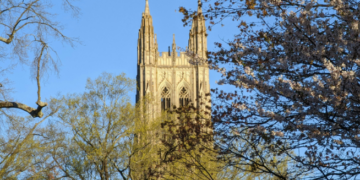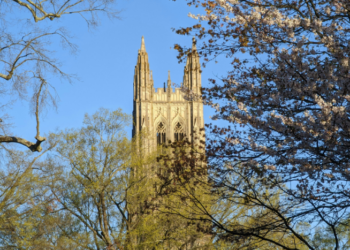The Bahá’í Faith is unique in many ways, but its administrative structure stands out as particularly noteworthy. Rooted in principles of unity and democratic governance, the organizational framework of the Bahá’í administration serves not only to facilitate community decision-making but also to foster a spirit of collaboration among its members. Understanding this intricate system can shed light on how the Bahá’í community operates globally while remaining deeply connected at local levels. If you’re curious about how this structured yet flexible approach works, let’s delve into the fascinating world of the organizational structure of the Bahá’í administration chart.
Table of Contents
Key principles of the Bahai Administration
The Bahai Administration is built on fundamental principles that guide its operations. Central to this framework is the concept of unity. The administration fosters collaboration among individuals, emphasizing collective decision-making.
Another key principle is the adherence to consultation. This democratic process encourages open dialogue and shared perspectives, allowing diverse voices to contribute to important decisions.
Inclusivity plays a vital role within this structure as well. Members from various backgrounds come together regardless of race or socioeconomic status, reflecting the Bahai commitment to equality.
Additionally, there’s an emphasis on spiritual development. Each administrative body not only manages affairs but also nurtures the moral growth of its members.
Service stands out as a core tenet; actions are geared toward uplifting communities and promoting social change in alignment with Bahai teachings. These principles create a dynamic system focused on both governance and spirituality.
The Structure of the Bahai Administration
The Bahai Administration is organized into a unique, tiered structure that emphasizes collective decision-making. At the apex sits the Universal House of Justice, which provides global guidance and leadership.
Beneath this central body are National Spiritual Assemblies representing each country or region. These assemblies play a crucial role in addressing local needs while aligning with international objectives set by the Universal House of Justice.
Local Spiritual Assemblies operate at the community level. They focus on fostering unity among members and implementing initiatives tailored to their specific communities.
This multi-tiered approach ensures that every voice can be heard, from individual believers to national representatives. Each level has defined responsibilities but also collaborates closely with others to maintain harmony within the faith’s governance system. Such a structure reflects core Bahai principles like consultation and shared responsibility, establishing an effective framework for administrative activities across diverse cultural contexts.
The Universal House of Justice
The Universal House of Justice stands at the pinnacle of the Bahá’í administrative framework. Established in 1963, it serves as an international governing body for the Bahá’í Faith.
Elected every five years by members of national assemblies, this institution comprises nine individuals. Their role is to guide and protect the unity of the global Bahá’í community.
This body addresses issues relating to spiritual guidance and social development. It also interprets sacred texts, ensuring that teachings evolve with contemporary society.
Members are tasked with making decisions on matters affecting believers worldwide. They work tirelessly to uphold principles of justice, equality, and collective decision-making.
In addition to its spiritual authority, the Universal House of Justice plays a vital role in promoting human welfare through various initiatives around education and social action. The influence extends beyond religious boundaries into broader humanitarian efforts globally.
National Spiritual Assemblies
National Spiritual Assemblies serve as the administrative backbone of the Bahai community within a country. Comprised of elected members, these assemblies play a crucial role in guiding local communities.
Each National Spiritual Assembly is responsible for overseeing the activities and affairs of Bahai members across its nation. They facilitate communication between individuals and larger governing bodies, ensuring that spiritual principles are upheld.
Beyond governance, they engage in social action initiatives aligned with Bahai teachings. This includes promoting education, health, and equality, reflecting their commitment to community well-being.
Elections take place every five years. Members are chosen through an inclusive process that emphasizes unity and collective decision-making. This democratic practice strengthens relationships among followers while allowing diverse voices to contribute to national policies.
By fostering connections at all levels, National Spiritual Assemblies nurture a vibrant sense of belonging within the global Bahai family.
Local Spiritual Assemblies
Local Spiritual Assemblies serve as the grassroots level of Bahá’í governance. These assemblies are elected annually by registered adult members within a specific locality.
Each assembly consists of nine individuals who work collaboratively to nurture and guide their community. They focus on spiritual development, social action, and promoting unity among residents.
One important role is organizing local activities like study circles, children’s classes, and devotional gatherings. This fosters a vibrant community spirit while also encouraging personal growth.
Assemblies handle administrative tasks such as budgeting for events or managing local resources. Their decisions reflect the collective will of the community they represent.
Through consultation and cooperation, Local Spiritual Assemblies embody principles central to Bahá’í teachings—unity in diversity, service to others, and fostering an inclusive environment for all beliefs.
Role and Responsibilities of Each Level
At the top of the Bahá’í administrative structure is the Universal House of Justice. This body guides and oversees global affairs, providing direction to communities around the world. Its decisions are vital for maintaining unity and implementing policies.
National Spiritual Assemblies act as intermediaries between the Universal House of Justice and local communities. They manage national activities, offer support, and ensure that local assemblies adhere to Bahá’í principles.
Local Spiritual Assemblies focus on community needs. They facilitate spiritual growth, organize events, and provide services tailored to their specific populations. Each assembly plays a crucial role in nurturing relationships among members.
Every level emphasizes consultation—a key principle in decision-making processes. This collaborative approach fosters an environment where diverse perspectives contribute to collective understanding and action.
Advantages of the Bahai Administrative System
The Bahai Administrative System brings several advantages that foster community unity and collaboration. First, it emphasizes consultation as a key practice. This approach encourages open dialogue, allowing diverse perspectives to shape decisions.
Additionally, the system is designed to operate without clergy. This creates an egalitarian environment where every member has a voice in governance. The absence of hierarchical structures promotes inclusivity and shared leadership.
Another notable benefit is its global reach. The uniformity of administrative practices across countries strengthens connections among Bahais worldwide. It cultivates a sense of belonging beyond geographical boundaries.
Moreover, the focus on service-oriented leadership inspires individuals to contribute positively to their communities. By prioritizing spiritual growth alongside administrative duties, this structure nurtures development at both personal and collective levels.
Adaptability characterizes the Bahai Administration’s framework. It evolves with changing circumstances while maintaining core principles intact, ensuring relevance in addressing contemporary challenges.
Challenges and Criticisms
The Bahai administrative system, while innovative, faces its share of challenges. One significant concern is the perception of centralization. Critics argue that the concentration of authority in certain bodies can lead to a lack of local autonomy.
Another issue is transparency. Some members feel that decisions made at higher levels aren’t always communicated effectively to grassroots followers. This gap can foster feelings of disconnect within the community.
Additionally, there are cultural differences among diverse Bahai populations worldwide. Tailoring policies to fit various contexts often proves complex and contentious.
Some question how adaptable the structure is in rapidly changing social landscapes. Balancing tradition with modernity presents an ongoing dilemma for leaders and adherents alike.
Conclusion
The organizational structure of the Bahai administration is unique and deeply rooted in its principles. This framework fosters a sense of community, unity, and purpose among followers. From the Universal House of Justice to local spiritual assemblies, each level plays a distinct role in guiding the Bahai community.
Understanding this administrative structure enhances appreciation for how the Bahai Faith operates globally. It shows how dedicated individuals work toward common goals while promoting harmony and cooperation across communities. The intricate design reflects not only functionality but also the core values of equality and service inherent within the Bahai teachings.































